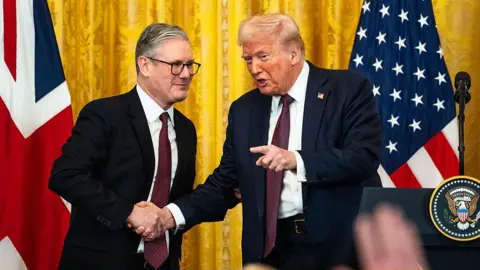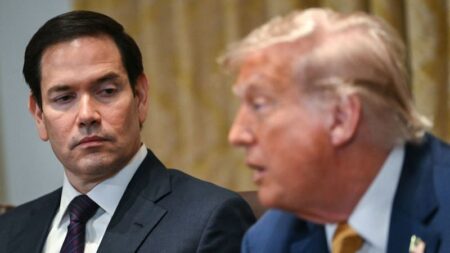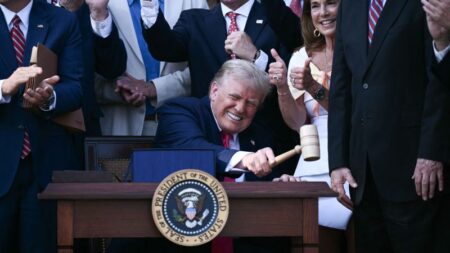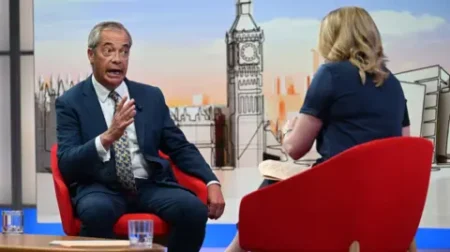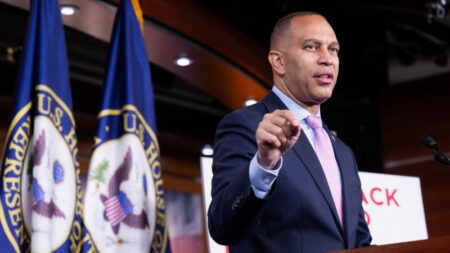In a recent development that has piqued the interest of international trade observers, the United Kingdom has been remarkably exempted from the substantial steel and aluminium tariffs imposed by US President Donald Trump. This executive order, signed on a Tuesday evening, increases import taxes for US businesses purchasing steel and aluminium from various countries. However, the levy for the UK remains unaffected at a rate of 25%, a statistic that is crucial for British manufacturers who rely on affordable material inputs for their production processes.
The exemption granted to the UK is largely attributed to a significant agreement known as the US-UK Economic Prosperity Deal (EPD), which was established earlier on May 8. The EPD’s framework suggests a collaborative trade relationship between the two countries, benefitting from alignment on economic policies. Nevertheless, the executive order stipulates that should the UK fail to adhere to the terms set out in the EPD by July 9, there is a possibility that the tariff rate could increase to 50%. This condition adds a layer of urgency for UK businesses and policymakers to ensure compliance with the agreed parameters of the deal to maintain favorable trading conditions.
The ramifications of this decision are significant, particularly for sectors reliant on metals such as the steel industry, which has faced challenges in recent years due to fluctuating global market conditions and varying tariff regimes. A spokesperson for the UK government articulated the administration’s commitment to maximize protection for British businesses and jobs across pivotal sectors, including steel. This stance is part of a broader strategy to bolster domestic industries while navigating the complexities of global trade.
This situation unfolds against a backdrop of heightened global trade tensions, with the US government frequently adjusting tariff rates under the umbrella of economic protectionism. These tariffs are typically implemented as a means to protect domestic industries from foreign competition, but they can often spark retaliatory measures from other nations, complicating international trade relations. Given this context, the UK finding itself outside the ambit of the increased tariffs presents a strategic advantage as it seeks to stabilize and grow its industrial base amid evolving economic landscapes.
In terms of economic strategy, the UK’s prompt compliance with the terms of the EPD could lead to enhanced trade relations with the United States, potentially unlocking further collaborative opportunities in sectors beyond steel and aluminium. The stakes are high as both nations work to foster a mutually beneficial economic relationship while managing the ramifications of broader geopolitical influences such as changing alliances, emerging markets, and shifting trade flows.
Furthermore, this situation invites additional scrutiny regarding how the UK will navigate its post-Brexit trade landscape. With the departure from the European Union, the UK has aimed to cultivate new trade agreements and partnerships globally, and interactions with the United States are particularly crucial. President Trump’s decision to not impose higher tariffs on the UK signals a momentary alignment in interests, which may serve as a platform for deeper trade negotiations in the future.
In conclusion, while the UK has been spared from the full brunt of tariffs that could have marked a significant setback to its steel and aluminium industries, this exemption comes with caveats that necessitate vigilant monitoring and compliance with trade agreements. The economic interplay between the UK and the United States continues to evolve, influenced by a myriad of factors that include international trade policies, domestic economic health, and the global landscape impacting sectoral performances across nations. This dynamic scenario exemplifies the intricate web of global trade and the challenges in ensuring stability and growth in an interconnected economy.





